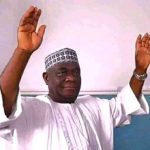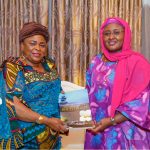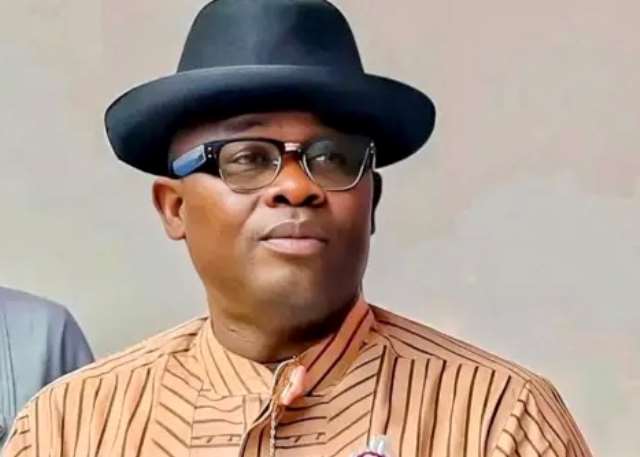….Pres. Buhari’s North-West records half of the figure
A huge 87 per cent of the poor and wretched in Nigeria are in the Northern zone, according to a World Bank report.
It scored the government low, saying the social protection measures implemented by the government in Nigeria had not been able to address the high level of poverty andvthe negative impact of conflicts and natural disasters.
Most of the poor in Nigeria are found in the Northern part of the country, it said describing the North-West as home to almost half of all the poor in the country.
Nigeria’s President, Muhammadu Buhari, is from Katsina, a state in the North-West, which like other parts of the North, has produced a larger proportion of Nigerian leaders.
Looking at inequality in the country, the report said, “Nigeria experiences high inequality along geographic lines, with poverty mostly concentrated in the North and in rural areas.
Quoting the report, “Poverty in the northern regions of the country has been increasing, especially in the North-West zone.
“Almost half of all the poor lived in the North-West and the North accounts for 87 per cent of all the poor in the country in 2016.
“Poverty rates in the southern zones were around 12 per cent with little variation across zones. The South-South zone saw the most significant drop in poverty from 2011-2016.
“Poverty was significantly higher in rural areas of the country in 2016. An estimated 64 per cent of all poor lived in rural areas and 52 per cent of the rural population lived below the poverty line in 2016.
” In contrast, the poverty rate in urban areas remained stable at 16 per cent between 2011 and 2016.”
It, however, painted the picture of a relatively prosperous South compared to an “impoverished North”, and states, “Regionally, the North lags far behind the South in every human capital outcome. People in the Northern regions are also more vulnerable to falling into poverty.”
“Youths recruited by Boko Haram are jobless, a development which made them more prone to radicalisation.
“The activities of the Boko Haram insurgents in the North-East since 2014 has created a sense of ‘failed political promise’.
I“Disasters and conflict have displaced many Nigerians, especially in the North-East,” the report said.
“Poverty and deprivation have played a central role in fostering a social divide.
“The youth used by Boko Haram to partake in the conflict are jobless, without skills, or trades, and are easily susceptible to radicalisation.”
The World Bank added that besides conflict, climate related factors had caused additional displacement in the North and the Middle Belt regions of the country.
In 2018, flooding affected 80 per cent of the country and triggered more than 600,000 new displacements.
“Social protection measures in the country are neither well-suited to respond to conflict, nor well-placed to anticipate and mitigate the risks of natural disasters caused by climate change.”
“Nigeria has the highest number of out-of-school children of primary school age in the world with nine million children out of school.
“There has been little change in vaccination rates over the last 25 years and Nigeria is set to overtake India as the country with most under-five deaths in the world.”
The First Lady, Aisha Buhari, recently raised the alarm over the large number of out-of-school children in the North.
The World Bank added that 71 million Nigerians lack access to improved water, while 130 million people do not meet the Millennium Development Goal standards for sanitation.
However, the situation is worse in the North-East and North-West, where only around 25 to 28 per cent of households have access to basic services such as electricity, water, and sanitation.
The World Bank further observed that number of Nigerians living in extreme poverty went up from 2011 to 2016.
The poor in Nigeria lag far behind the rich in every human capital outcome, according to the World Bank Human Capital Index, where Nigeria ranked among the worst seven performers.
It noted that the rate of poverty in Nigeria increased from 35.0 to 38.8 per cent of the total population from 2011 to 2016.
The report points out that despite Nigeria’s middle-income status, almost four out of 10 citizens lived below the national poverty line in 2016.
Between 2011 and 2016, the total number of people living in poverty increased from 57 million to 74 milliion.
“The Northern elite in the First Republic were far-sighted and focused on promoting a socio-cultural revolution that would have ensured that the North adopted the twin policies of education and entrepreneurship at the grassroots.
“On the other hand, the elite that followed were grabbing political power with single-minded focus.
“They have failed to ensure that every child either acquires education and thus becomes ‘employable’, or learns a trade and becomes self-employed,” he said.
He challenged the northern leaders to ensure that every child was employable or self-employed through education, vocational training and skill acquisition programmes.
























Leave a comment